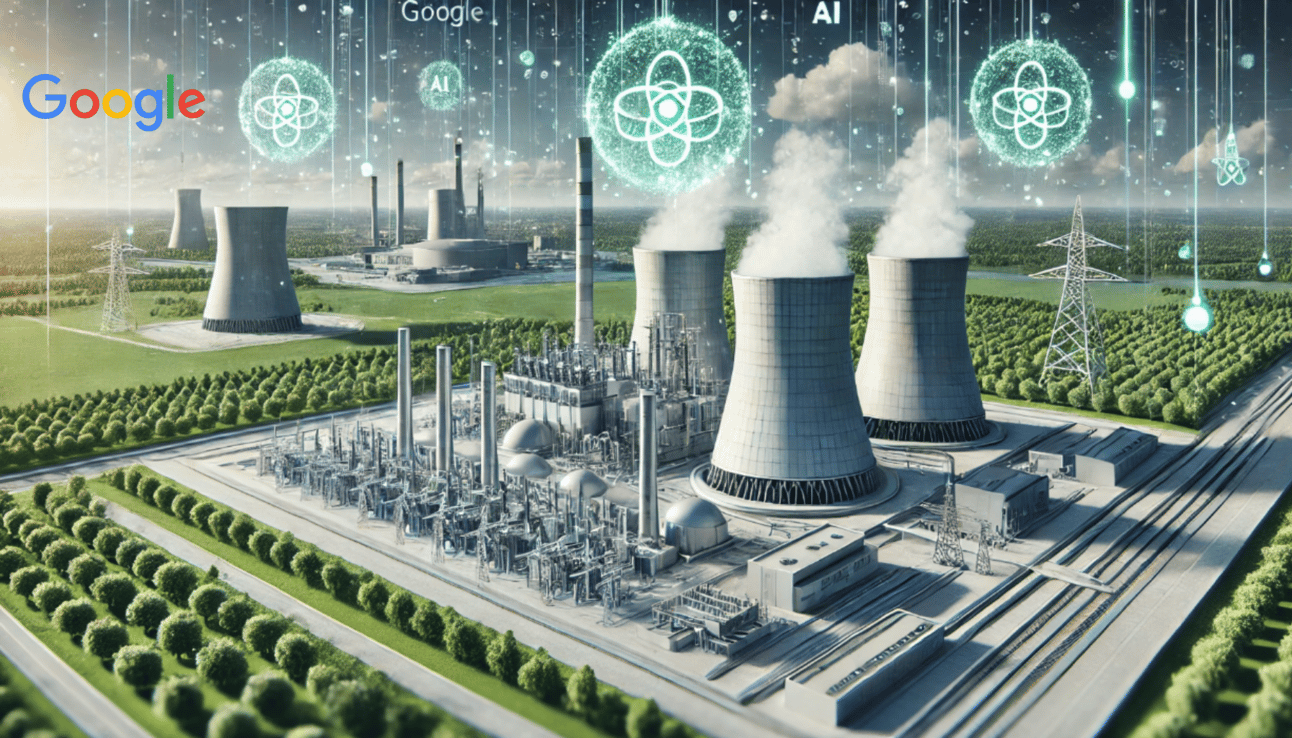
Image Source: ChatGPT-4o
Google and Kairos Partner for Nuclear Clean Energy Agreement
To accelerate the transition to clean energy across the U.S., a groundbreaking corporate agreement has been signed by Google to purchase nuclear energy from multiple small modular reactors (SMRs) being developed by Kairos Power. This marks the world's first corporate agreement of its kind, building on over a decade of efforts to integrate clean energy solutions into business practices.
Pioneering Advanced Nuclear Energy
Google has long been at the forefront of accelerating clean energy technologies, starting with its early investments in renewable electricity. This new partnership with Kairos Power is the latest step, designed to bring SMRs online by 2030 and continue their deployment through 2035. This agreement is set to deliver up to 500 MW of carbon-free power to U.S. electricity grids, enabling a significant increase in clean and reliable energy that can power both homes and businesses.
Supporting AI and Economic Growth
The agreement holds particular importance for AI and data centers, which rely heavily on consistent energy sources. With data centers projected to consume up to 9% of U.S. electricity by 2030, the need for reliable, carbon-free energy sources like nuclear is becoming critical. By supporting the growth of AI technologies, this clean energy agreement is expected to fuel major scientific advances, enhance business services, and drive national competitiveness and economic growth.
Nuclear Energy as a 24/7 Clean Power Source
Nuclear power offers a round-the-clock solution to meeting electricity demands without carbon emissions. In partnership with local communities, this agreement aims to accelerate the decarbonization of global electricity grids, ensuring clean energy is available every hour of the day. The advanced modular design of these SMRs allows for faster and more affordable deployment, which could significantly reduce construction times and costs.
Economic Benefits for U.S. Communities
Beyond environmental benefits, nuclear energy promises substantial economic advantages. According to the U.S. Department of Energy, nuclear power has the highest economic impact of any energy source, creating long-term, high-paying jobs. To meet the projected growth of advanced nuclear capacity in the U.S., it is estimated that 375,000 additional workers will be needed by 2050.
Kairos Power’s Innovative SMR Design
Kairos Power’s advanced Small Modular Reactor (SMR) technology uses a molten-salt cooling system combined with ceramic, pebble-type fuel for efficient heat transfer to a steam turbine. One of the key innovations is the reactor’s low-pressure operation, which allows for a simpler and safer design compared to traditional high-pressure, water-cooled reactors. Additionally, the smaller, modular design enables faster construction and deployment, reducing both project timelines and costs. This approach not only makes the reactors more affordable but also easier to maintain over the long term.
Accelerating Deployment Through Collaboration
By securing electricity from multiple reactors, this agreement aims to accelerate the deployment of SMRs, making advanced nuclear technology more accessible and affordable. Google's approach builds on its past collaborations, such as its work with Fervo Energy on enhanced geothermal projects and partnerships with utilities to develop clean energy transition rates. This new nuclear agreement will complement Google’s use of variable renewables like solar and wind, ensuring 24/7 carbon-free power availability. The combination of nuclear and renewables will help the company reach its ambitious net-zero and 24/7 carbon-free energy goals, further solidifying its leadership in clean energy innovation.
Industry-Wide Movement Toward Nuclear Energy
Google isn’t the only tech giant investing in nuclear energy solutions. Both Microsoft and Amazon have taken significant steps to incorporate nuclear power into their clean energy strategies. Microsoft made headlines by purchasing Three Mile Island, the site of a historic nuclear facility, with plans to develop advanced nuclear power as part of its efforts to achieve carbon-free energy. Amazon, on the other hand, has invested in clean energy projects, including nuclear, as part of its sustainability goal to reach net-zero emissions by 2040.
This broader industry shift underscores the growing recognition of nuclear energy as a key solution for providing reliable, round-the-clock power that complements other renewable sources like wind and solar. As data centers and AI technologies drive energy demand, these tech companies are leading the charge in adopting innovative energy solutions to support the next generation of technological advancements while addressing climate change.
What This Means for the AI Industry and Climate Change
This agreement marks a significant step forward for both AI and climate change efforts. As AI technologies demand more power, the adoption of advanced nuclear energy could provide the 24/7, carbon-free electricity needed to support their growth. For climate change, this agreement represents a shift towards clean, scalable energy solutions that can help mitigate the global reliance on fossil fuels. By combining AI innovation with sustainable energy practices, this collaboration could pave the way for a greener and more technologically advanced future.
